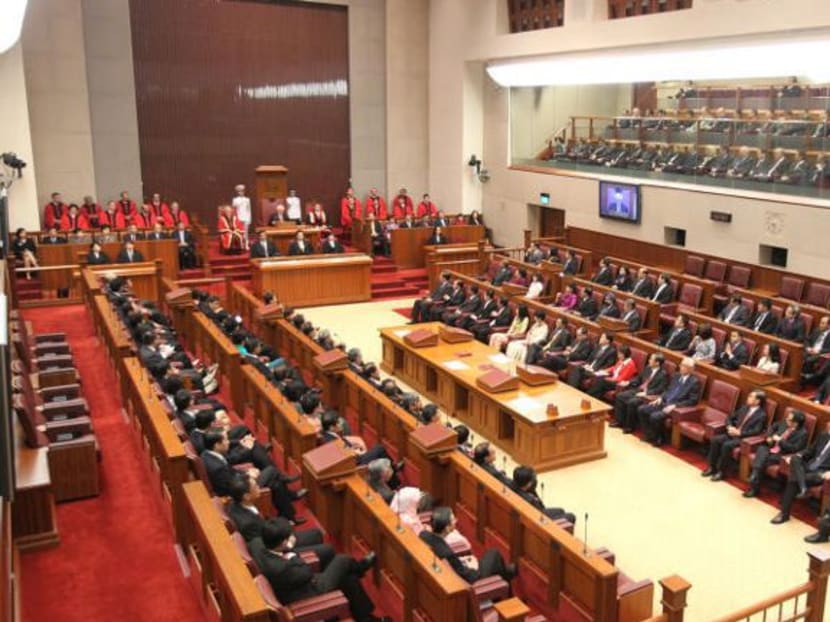GRC approach among ideas to ensure minority President
SINGAPORE — The question of how to ensure minority representation was again brought up during the second public hearing on the review of the Elected Presidency yesterday, amid wide-ranging concerns raised.
SINGAPORE — The question of how to ensure minority representation was again brought up during the second public hearing on the review of the Elected Presidency yesterday, amid wide-ranging concerns raised.
The Eurasian Association proposed a “Group Representation Constituency” structure, whereby voters choose from groups of two or three candidates, at least one of whom must be of a minority race.
One member of the group will be identified as the front runner and will be President if the group is elected. If there is no minority-race President after two elections, the minority candidate in the group will be President.
Speaking at the hearing, the association’s president Benett Theseira stressed they are not in favour of an election restricted to minority candidates. “It goes against the grain of multiracial philosophy, and may create unhappiness, forcing people to vote for a single individual who is an ethnic minority,” he said.
Mr Theseira also noted that while it is necessary to raise the paid-up capital criteria of presidential candidates in line with Singapore’s economic growth, it must not significantly reduce the pool of candidates, which will be disproportionately felt among the minority. Financial acumen, he added, should not be the “be all and end all” in determining the suitability of candidates.
Yesterday also saw a call for the electorate to have a greater say in the composition of the Council of Presidential Advisers (CPA), and more transparency on the council’s decisions.
Lawyer Ronald Wong proposed that two members of the CPA be elected by the public, and a multiracial composition be mandated for the council. The President can then be chosen through voting among the CPA members.
But Far East Organization chief executive Philip Ng, a member of the Constitutional Commission reviewing the Elected Presidency, noted it would be “desirous” for the CPA and President to be able to work together in a cohesive way, even if they do not always agree. He asked: Could there be contention if there were to be more than one aspiring President elected to the council, and those not chosen eventually must still work with the President?
A group of Singapore Management University law students suggested that the CPA be restructured to form three wings that look at specialised areas. They also called for greater transparency on the way CPA members decide and vote on matters, which student Alexander Kamsany Lee described as “shrouded in mystery”.
Chief Justice Sundaresh Menon, who chairs the commission, said it might not be a wise move to split the council according to expertise, as there is “great benefit” in having CPA members of diverse backgrounds look at all issues.
Justice Tay Yong Kwang, who also sits on the commission, pointed out that there are matters, such as the appointment of public officers, that could involve sensitive information. A better alternative could be for the President to act on the advice of the Cabinet on which matters to make public, he said.
Lawyer Ranvir Kumar Singh was in favour of raising the paid-up capital threshold. Under current rules, a prospective candidate must have held a key position such as Cabinet Minister or Chief Justice, or have had experience managing a large organisation with a paid-up capital of at least S$100 million.
Suggesting the figure be raised to S$500 million, Mr Kumar pointed to the paid-up capital of Singtel, which has increased five-fold since the 1990s. The firm managed by the candidate should also be scrutinised for its profitability and scope of business operations, to determine if the candidate has the ability to handle complex financial matters.
Mr Rey Foo, also a lawyer, raised the need for more safeguards against “grandiose promises” made during the presidential campaigning process. Among other things, he proposed that a tribunal be set up to determine if the candidate has made irresponsible statements.
Said Mr Foo: “Given the solemnity of the office of the Elected President, there is a grave responsibility on the candidates to ensure that their campaign platform is limited to what the Constitution allows the President to do.”







